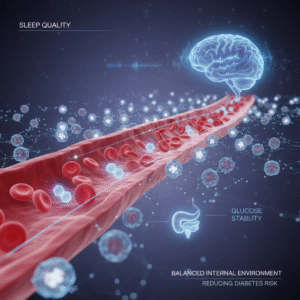Learn about the risks of untreated sleep apnea and the importance of seeking timely diagnosis and treatment for optimal health and longevity.
Understanding the Risks of Untreated Sleep Apnea
Recent research conducted over a 20-year period emphasized the alarming health implications of sleep apnea when left unchecked. The study revealed that individuals with untreated sleep apnea faced a staggering four times higher risk of mortality compared to those without the condition.
This increased risk was particularly pronounced in the context of stroke incidence, with affected individuals being four times more likely to experience a stroke. Additionally, the study unveiled a 2.5 times higher likelihood of developing cancer among individuals with sleep apnea at the start of the research period.
Seeking Diagnosis and Treatment
Notable symptoms of sleep apnea include loud and persistent snoring, episodes of gasping or choking during sleep, excessive daytime fatigue, and morning headaches. Individuals experiencing these signs should consider seeking medical evaluation to determine if sleep apnea is the underlying cause.
If sleep apnea is suspected, consulting a board-certified sleep medicine physician for a comprehensive evaluation is crucial. A timely diagnosis and appropriate treatment can significantly reduce the risks associated with the condition, enhancing overall quality of life and well-being.
Prioritizing Sleep Health
In addition to seeking medical assessment for potential sleep disorders, cultivating healthy sleep habits is essential for overall well-being. Prioritize regular sleep schedules, create a conducive sleep environment, and practice relaxation techniques to promote restful and rejuvenating sleep.
Embracing a holistic approach to health and wellness, inclusive of adequate sleep, balanced nutrition, regular exercise, and stress management, is key to optimizing longevity and reducing the risks associated with various health conditions, including sleep apnea.
Conclusion
Undiagnosed and untreated obstructive sleep apnea poses significant risks to long-term health and well-being, with potential implications for stroke, cancer, and overall mortality rates.
Prioritizing sleep health, seeking timely medical intervention when symptoms arise, and adopting healthy lifestyle practices are crucial steps in mitigating these risks and promoting overall longevity and vitality.
Frequently Asked Questions
Q: What are the common symptoms of obstructive sleep apnea?
Common symptoms of obstructive sleep apnea include loud snoring, gasping/choking during sleep, persistent fatigue, and morning headaches.
Q: Why is it essential to seek medical evaluation for suspected sleep apnea?
Timely diagnosis and treatment of sleep apnea are crucial to reduce the risks associated with the condition and enhance overall quality of life.
Sources
- National Sleep Foundation: https://www.sleepfoundation.org
- Mayo Clinic – Sleep Health: https://www.mayoclinic.org
- NIH – Neurological Disorders: https://www.ninds.nih.gov
- CDC – Sleep and Sleep Disorders: https://www.cdc.gov/sleep
- WebMD – Sleep Disorders: https://www.webmd.com/sleep-disorders
- Healthline – Sleep: https://www.healthline.com/health/sleep








